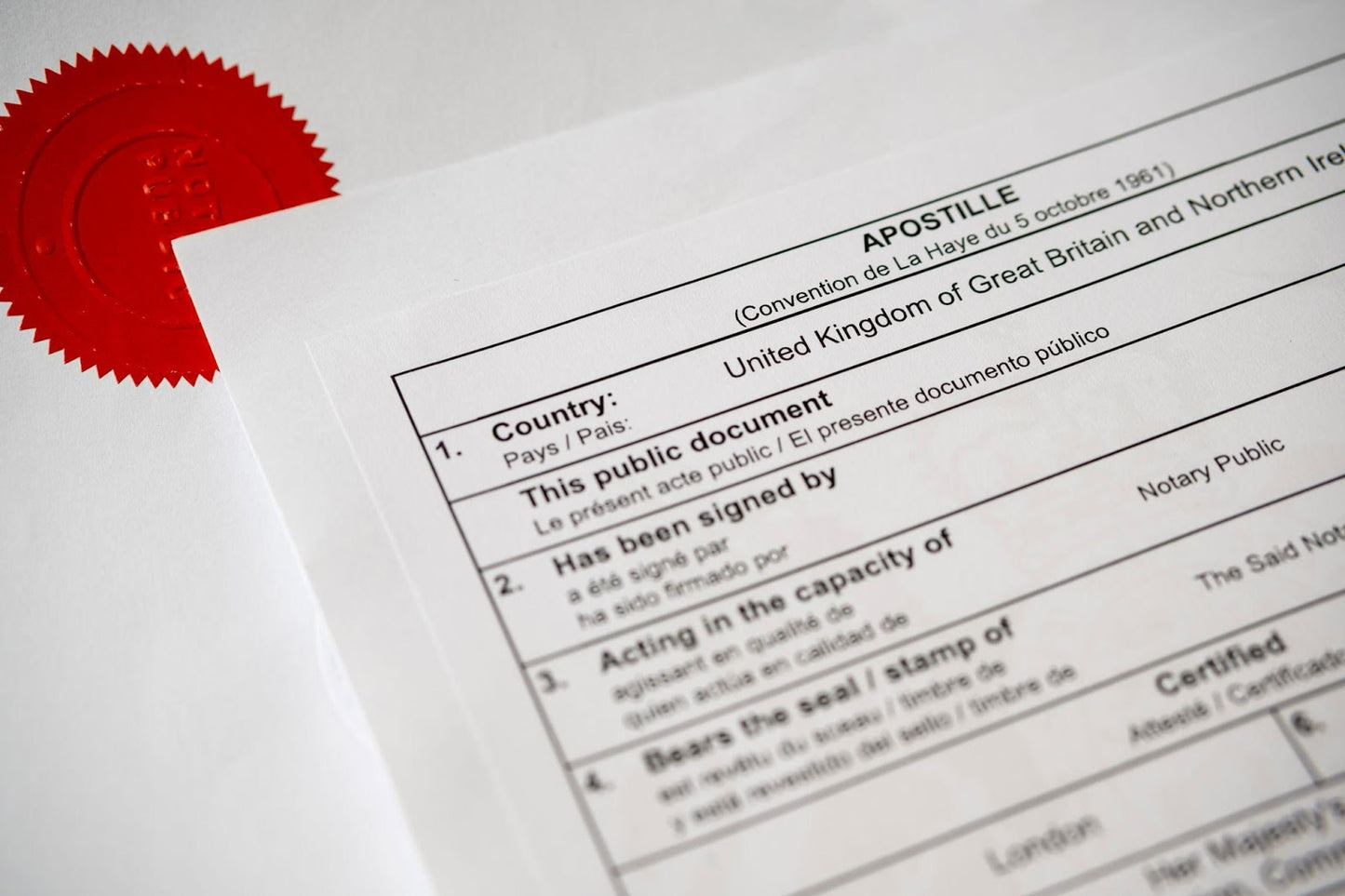
When a notarized document is sent to another country, it often needs supplemental documentation to go along with it. Apostilles and authentication certificates are both papers used to validate the notary's seal and signature on a document so that a foreign country will accept it. Although apostilles and authentication certificates serve the same purpose as each other, they differ in appearance and places of use.
When Is an Apostille Needed?
Many countries, including the United States, are part of the Hague Apostille Convention of 1961. In these countries, an apostille is the only document required to authenticate a foreign notarization. The Hague Apostille Convention was a treaty that streamlined the process of authenticating foreign documents. Apostilles are convenient since they require no further consular or diplomatic legalization.
When Are Certificates of Authentication Required?
In countries that are not part of the Hague Convention, certificates of authentication, usually several of them, authenticate a notarized document. These certificates come from the following entities:
- The notary's commissioning agency
- The U.S. Department of State
- The destination country's consul
- Another official in the destination country
As you can see, there can be a lot more paperwork when dealing with non-Hague Convention countries.
What Is the Notary's Role Concerning These Documents?
The good news is that these kinds of documents aren't something you need to be particularly concerned with as a notary. It is the signer's responsibility to request an apostille or certificates of authentication. As the notary, your only responsibility is to notarize the document itself.
That said, some notaries provide a service that delivers and returns apostille paperwork to their customers. This service can generate more income for a notary since "apostille services" are beyond the scope of a notary's responsibility.
Even though it's not your responsibility to authenticate foreign documents in this way, it's still a good idea to be knowledgeable on the subject so that you can answer your clients' basic questions. For example, you should be aware that in the state of Pennsylvania, the procedure for attaching authentication documents to the dossier document is to use a staple.
Are you interested in learning more about notarial responsibilities and practices? We’re here to help! Notaries Equipment Company and M. Burr Keim Company can obtain apostilles and legalized documents from the Pennsylvania Department of State as well as other jurisdictions for you and your clients on an expedited basis.
Please contact our office for more information regarding the process and estimated costs involved, official notary public supplies, or Pennsylvania state-approved notary public courses.
